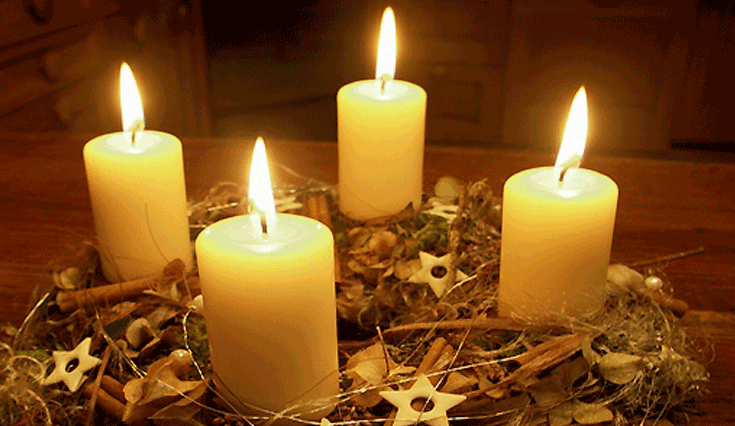
Micah 5,1-4: “From you shall come forth for me one who is to be ruler in Israel”
The prophet is faced with people divided into two kingdoms, who argue both on political issues and on religious ones, a people far from the ideal embodied by King David. His oracle invokes the coming of the new David, of the Messiah. The lesson of Bethlehem is primarily a praise of humility. The second message that comes from Bethlehem is a meditation on history. When important places and institutions enter into a phase of crisis or decline, renewal comes from places considered as periphery, less important and small. The One who comes is God who suffers the violence of men, but in this is found His strength.
Zac 10,4: “From him comes the cornerstone, from him the tent peg, from him the battle bow, from him every ruler[c] together”
Jn 10,9: “I am the gate. Whoever enters by me will be saved, and will come in and go out and find pasture”.
Hebrews 10, 5-10 As is written of me in the scroll
Christ entering in the world reveals the full and strong understanding of the Word of God, which becomes His. This is the journey which the Word of God should fulfill in us: to become our word. There’s a need to “master” the Word of God. Certainly not to immerse it in our individualism, but simply to take it into the depths of ourselves. Obedience that comes from the Word is a very strong act of will, the radical assumption of the responsibility for one’s life, absolute affirmation of liberty from all external and interior conditions. It is wonderful how the Word of God descends in history.
Jer 36,28: “Take another scroll and write on it all the former words that were in the first scroll, which King Jehoiakim of Judah has burned”.
Rev 6,14: “The sky vanished like a scroll rolling itself up, and every mountain and island was removed from its place”
Luke 1,39-48 “Blessed are you among women”
The “greeting” of Mary to Elizabeth, which is the extension of the greeting that Mary has received from the Angel at Nazareth, illumines the fruitfulness of Elizabeth with the Spirit of Jesus. Elizabeth, and in her the ancient history of salvation, “was filled with the Holy Spirit”. Mary gathers in her person, the dual character of the daughter of Zion and the Mother of God, in the Covenant of Jesus. Mary is the “Blessed”, “full of grace” that the Angel greeted at Nazareth. What the Lord said to her at the annunciation at Nazareth is the fulfillment of all the Word that God has given to His people in the centuries of preparation and prophecy. Precisely because she “has believed”, Mary is in the prayer of Christian devotion, the “Ark of the New Covenant”.
Ps 18,46: “The Lord lives! Blessed be my rock, and exalted be the God of my salvation”
Lk 1,68: “Blessed be the Lord God of Israel, for he has looked favourably on his people and redeemed them”.
For Personal or group reflection:
– What do you hope to receive from the Lord?
– What have you discovered in your life?
– What makes you feel blessed?


